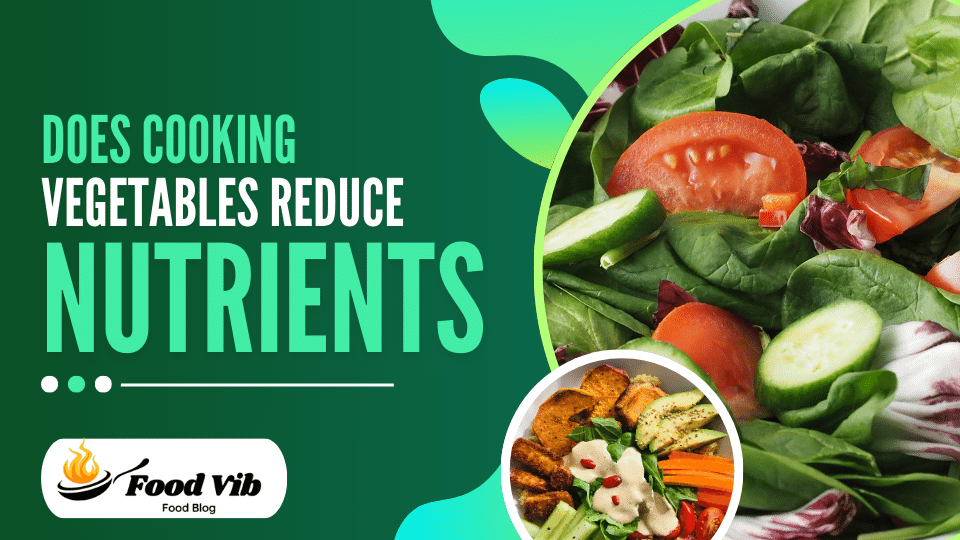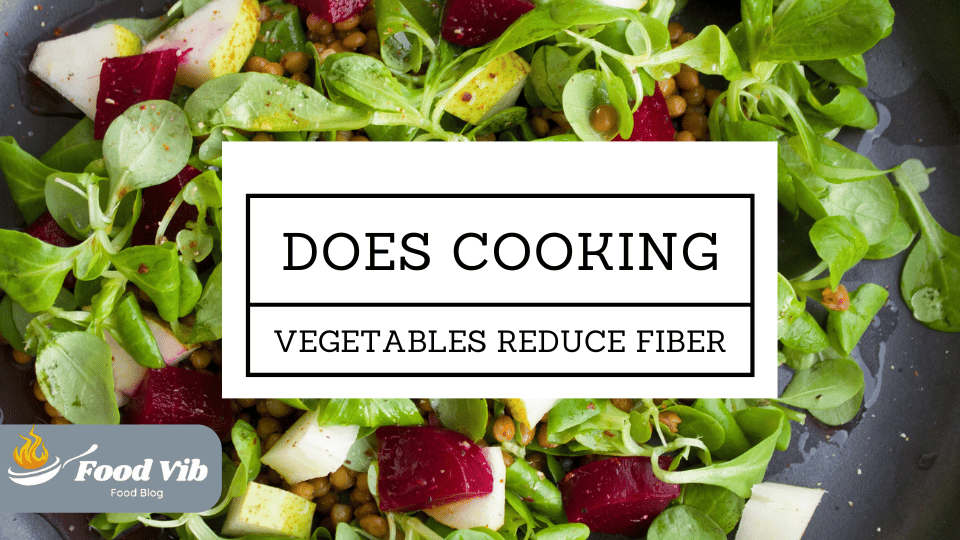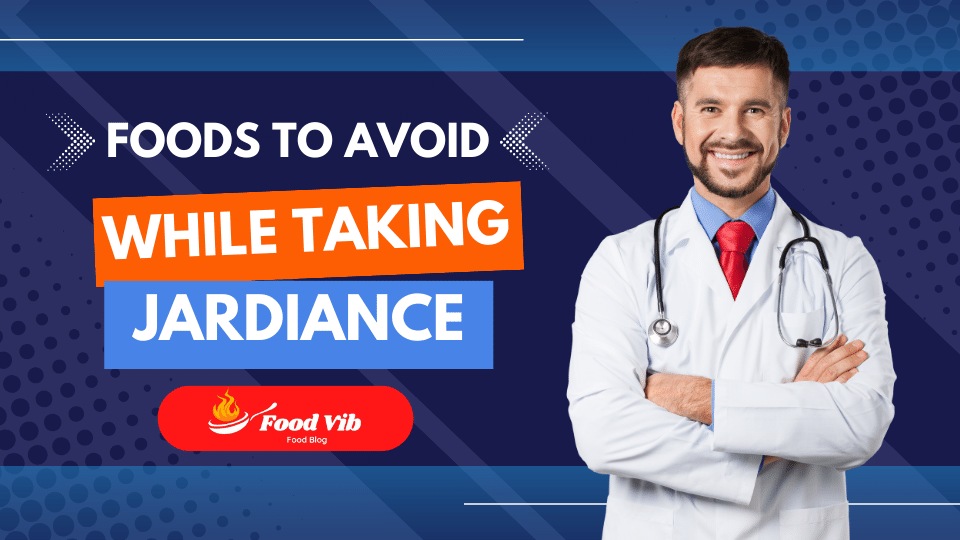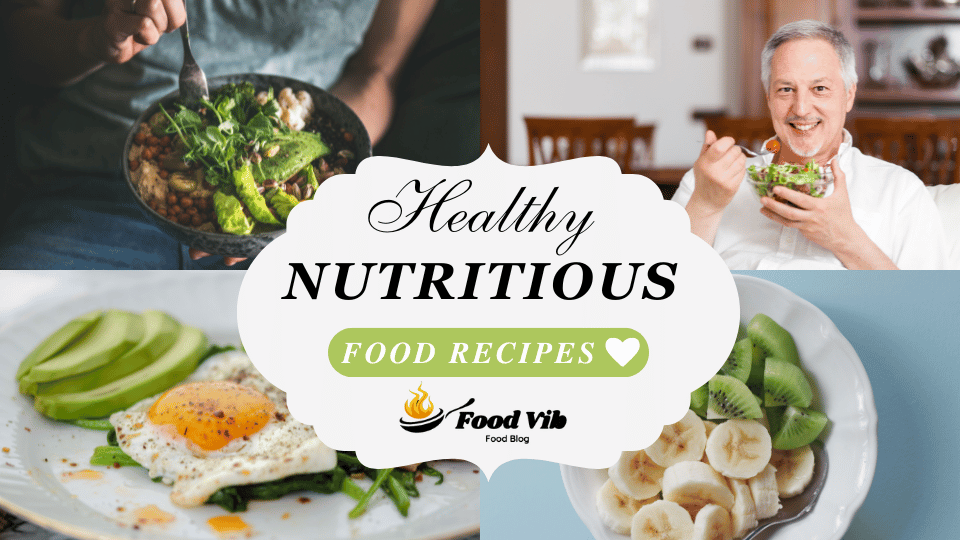Does Cooking Vegetables Reduce Nutrients

Have you ever wondered if cooking vegetables can actually decrease their nutritional value? Many people believe that raw vegetables are always the healthiest option, but the truth is, cooking them can have both positive and negative effects on their nutrient content.
In this article, we will explore the science behind how cooking methods impact the nutrients in our vegetables and provide tips for maximizing their nutritional benefits in our everyday meals. So let’s dive in and find out whether does cooking vegetables reduce nutrients or not.

Does Cooking Vegetables Reduce Nutrients
Yes, cooking veggies can change their benefits, but it’s not all bad news! Here’s the breakdown:
Some minerals take a hit:
Vitamin C: This one is especially sensitive to heat and water. Boiling can zap up to half of it!
B vitamins: These vitamins are also heat-sensitive and can be lost during long cooking times.
But wait, there’s more!
Cooking can break down tough walls: This makes some nutrients, like beta-carotene in carrots, easier for your body to absorb.
Tomatoes are an exception: Cooking actually boosts lycopene, an antioxidant good for your heart.
So, what’s the best way to cook your veggies?
Minimize cooking time: Steaming, microwaving, and stir-frying are faster choices that save more nutrients.
Keep the water to a minimum: Boiling veggies in a lot of water can take out vitamins.
Don’t throw away the cooking water: Use it in soups or sauces to catch some lost nutrients.
Must Read: How to Cook Hibachi Vegetables
A Step-by-Step Guide, Cooking Vegetables for Optimal Nutrition:
Cooking veggies can improve their taste and make them more enjoyable to eat. But did you know that the way you cook veggies can also affect their nutritional value? By following some simple steps, you can ensure that you’re getting the most out of your veggies in terms of both taste and nutrition.
Let’s dive into a step-by-step guide to cooking veggies for best nutrition.
Choose Fresh Vegetables:
The trip to healthy meals starts at the food store or farmer’s market. Look for fresh veggies with bright colors and strong textures. Fresh veggies contain more nutrients compared to their canned or frozen versions.
Wash Thoroughly:
Before cooking, it’s important to wash your veggies fully under running water. This removes dirt, germs, and any chemical leftovers, ensuring your veggies are clean and safe to eat.
Select the Right Cooking Method:
Different cooking ways can impact the nutritional value of veggies. While some ways retain nutrients, others may cause them to leak out. Opt for cooking methods like heating, baking, or stir-frying, which help keep most of the vitamins and minerals.
Don’t Overcook:
Overcooking veggies can lead to vitamin loss. Aim to cook your veggies until they are soft but still slightly crisp. This maintains their structure and nutritional worth.
Season with Care:
Enhance the taste of your greens with herbs, spices, and healthy cooking oils like olive oil. Avoid adding extra salt or high-fat sauces, as they can negate the health benefits of your dish.
Must Read: Betty Crocker Angel Food Cake Mix
The Science Behind Nutrient Changes in Cooked Vegetables:
Have you ever thought what happens to the vitamins in your food when you cook them? Well, science has some answers!
Cooking can sometimes change the nutrients in veggies. Here’s the breakdown:
Some vitamins take a dip:
Vegetables are full of vitamins, especially vitamin C and some B vitamins. These vitamins are sensitive to heat and water, so boiling or cooking for a long time can make them disappear. Think of them like shy friends who don’t like the attention!
Not all vitamins are made equal:
Some vitamins, like vitamin A (found in carrots) and some antioxidants, are actually more available to your body after cooking. Heat helps break down the cell walls in veggies, making these nutrients easier to receive.
Cooking methods matter:
Boiling veggies in a lot of water can lead to the biggest vitamin loss. Steaming, microwaving, baking, and stir-frying are easier on vitamins, especially if you use less water and cook for a shorter time.
Here’s the good news: Even if some vitamins are lost during cooking, veggies are still a super healthy choice. They are packed with fiber, vitamins, and other important nutrients.
Tips for keeping veggie vitamins happy:
- Cook fast and with less water.
- Steam or microwave instead of cooking.
- Use the cooking water in soups or sauces to recover lost nutrients.
- Eat a variety of colored veggies to get a full range of vitamins.
Remember, it’s all about finding a balance. Enjoy cooked veggies for their goodness and taste, and don’t forget to include some raw ones in your diet too!
Must Read: The Health Risks of Eating on Eliquis
Conclusion:
While cooking vegetables reduce nutrients, it improves their digestion and makes certain nutrients more available to our bodies. The amount of nutrition loss varies on the cooking method and time. Overall, combining a range of cooking methods, such as boiling, sautéing, and baking, can help maintain the nutritional value of veggies while adding taste and texture to meals. Additionally, mixing cooked veggies with raw ones can provide a balance of nutrients and tastes in our meals.
Must Read: The Pros and Cons of Eating Tuna Out of the Can
FAQs (Frequently Asked Questions)
2. Are there specific nutrients that are more sensitive to cooking?
Yes, some nutrients are more sensitive to cooking than others. Heat, water, and contact to air can change the nutritional value of foods.
3. Does slow cooking reduce nutrients?
Slow cooking can cause some loss of nutrients in food due to prolonged exposure to heat and water. However, it also preserves nutrients better than some other cooking methods like boiling, making it a healthier choice overall.
What Are the Risks of Cooking Vegetables Without Nutrients?
Cooking vegetables without nutrients can lead to a loss of vitamins and minerals, making them less nutritious. Overcooking can destroy delicate nutrients like vitamin C and folate, reducing their health benefits. It's important to cook vegetables in a way that preserves their nutritional value to maintain their health benefits.
Does cooking carrots destroy nutrients?
Cooking carrots can slightly reduce some nutrients like vitamin C and certain antioxidants. However, it also makes other nutrients more available for absorption, like beta-carotene. Overall, cooking carrots can be a healthy option as long as they're not overcooked.
Does frying vegetables remove nutrients?
Frying vegetables can remove some nutrients, like vitamin C and certain antioxidants, due to exposure to high heat and oil. However, it's still possible to retain some nutrients depending on the cooking method and duration.
Why do vegetables lose nutrients when boiled?
Vegetables lose nutrients when boiled because some vitamins and minerals are water-soluble, meaning they dissolve in water. When vegetables are boiled, these nutrients leach out into the water, reducing their overall nutritional content.






One Comment